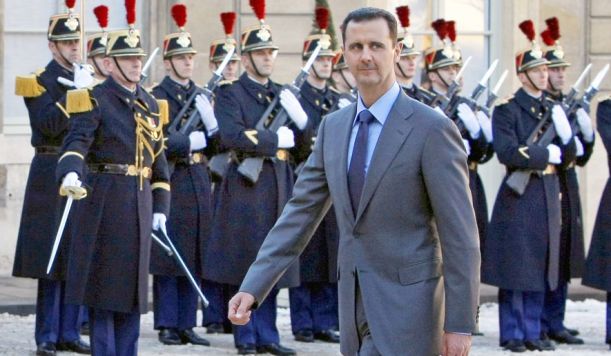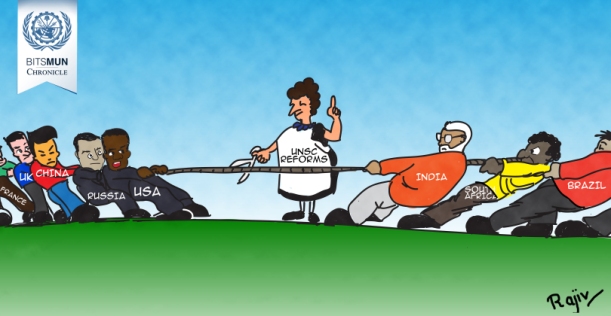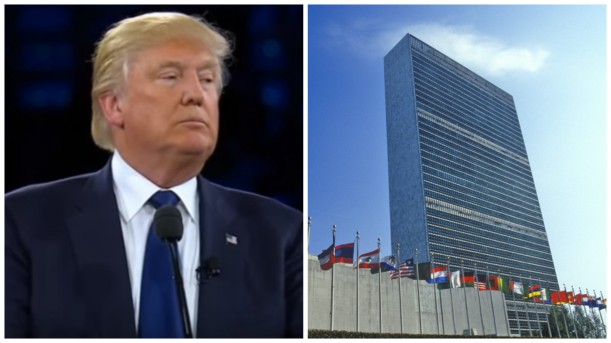Bradley Willis
On April 1, 2017, the armed forces of Syrian President Bashar al-Assad launched a chemical weapon attack on a Syrian hospital.[1] Unfortunately, this attack is not the first instance of chemical warfare in the Syrian Civil War.[2]
Raging for the past six years, the Syrian Civil War has claimed the lives of hundreds of thousands of men, women, and children.[3] In 2012, then-President Barack Obama drew the non-infamous “redline”, claiming it would “change my calculus” if chemical weapons were used in the Syrian War. [4] While the Obama Administration appeared to be heading towards another intervention in the Middle East, the administration soon reversed itself, placing its hopes on a deal reached with the Russian Federation. In this 11th hour deal, the Russians were to oversee the destruction of President Assad’s chemical weapons.[5]
While the United States may well have avoided another Middle Eastern quagmire and may well have ceded prestige and influence to the Russians, the world largely watched the horror unfold as thousands of Syrian citizens were rendered helpless by chemical nerve agents. The world was horrified at the effects of the nerve agents, and yet the world continued with business as usual.

Just as then-President Obama was torn between military intervention in the Syrian Civil War and non-intervention, President Trump is torn between intervening in a years-long war and remaining on the sidelines. Even though candidate Trump campaigned on an “American First” platform, consistently claiming he was against the Second Iraq War from the beginning, the President must understand that America must stand for the non-use of chemical or biologic weapons against citizens, or even on the battlefield.
America, from its founding, has stood for the universal rights of freedom and self-determination, enshrined in our Declaration of Independence from George III, chief among them, life, liberty, and the pursuit of happiness. While, like all nations, the history of the United States is tainted with horrific episodes, the United States stands for human rights. In the history of the world, the United States is one of the only, if not the only, nation that fought a brutal civil war to set other men free from bondage.
Furthermore, the United States, and its allies, fought two World Wars under the principles of self-determination and freedom from tyranny, persecution, and genocide. From the ashes of the Second World War rose the United Nations. That institution too, seems incapable of stopping Assad’s gas attacks.

Protected by the Chinese and Russian veto, the Syrian government will probably never pay for its gross violation of international law and the laws of war. This then begs the question: if the United Nations is no longer an institution capable of protecting the innocent, then what is its purpose in its current form? What would make this institution capable of truly bringing violators to justice and face the consequences of their actions?
There has been some discussion on reforming the United Nations Security Council. In what form would such an arrangement take? Would there be any permanent members removed from their permanent positions? Who would take their place? In the event present permanent members are not removed, what members would receive permanent membership? Finally, how would that affect the veto powers?
Some have offered the addition of the “BRIC(S)” as permanent members to the Security Council, minus the already-permanent members of Russia and China. As the leading emerging economies Brazil, India, and South Africa would receive permanent status as well as a veto.

As the largest country in South America, Brazil would add diversity to the Council, as it would be the only permanent member from South America. As another emerging economy with a large population, and a democracy, India would be a leading candidate to receive permanent status. However, given various geopolitical concerns, China would likely vocally oppose any such appointment to the Security Council’s permanent members. Pakistan, India’s longtime rival, would oppose such an appointment as well. Given the absence of an African voice on a permanent basis, South Africa would probably receive the veto and permanent status. But the question would then turn to the following: given the dilution of the veto, what would be its power?
Would the United Nations determine that since there would be as many as eight members, would any veto require just one permanent member to halt a resolution, or would two members be necessary? Could this body become more democratic, with “majority rule” be the rule? If that is the case, how would the decidedly non-democratic states of Russia and China respond? They could, one could plausibly foresee, cut back on their involvement in the Security Council, deciding that they no longer have as much of a stake in the body.
While the United Nations has been unable to protect the innocent in conflicts like Rwanda, the Sudan, Syria, or Eastern Ukraine, the UN must reevaluate its work. The United Nations appears paralyzed and incapable of living up to providing for peace and prosperity for all nations. Perhaps a remedy for this apparent paralysis could include more permanent members of the Security Council while revising the current rules regarding the veto powers of the permanent members.
While the United Nations expressed outrage as from this most recent chemical weapons attack against an innocent civilian population, the UN has not taken any concrete actions against Bashar al-Assad. While President Trump campaigned on an “America First” platform, the president’s most recent actions[6] are polar opposites of such a course. United Nations Ambassador Nikki Haley stated that, regime change in Syria is “inevitable.”[7]

It appears that President Trump is evolving in his new role as commander in chief and as leader of the free world. From campaigning on an “America First” platform to his strikes against Syria, and the dispatching of the USS Carl Vinson strike group to the Korean Peninsula, President Trump has shown he is willing to use military force to further the interests of the United States in the absence of United Nations action.[8]
Bradley Willis is a 3L at the University of Baltimore School of Law. He graduated from the University of Delaware (2014) with a Bachelor of Arts in Political Science and minors in History and French and studied abroad in Caen, France. His areas of interest are international relations, history, politics, and the laws of war. Bradley spent a semester externing with the Hermina Law Group, researching and writing sovereign immunity issues as well as embassy law. Last year, he participated in the Philip C. Jessup Moot Court Competition. He is currently a law clerk for the Law Office of David B. Love, P.A.
[1] http://www.cnn.com/2017/04/09/middleeast/syria-missile-strike-chemical-attack-aftermath/index.html
[2] https://www.washingtonpost.com/world/national-security/nearly-1500-killed-in-syrian-chemical-weapons-attack-us-says/2013/08/30/b2864662-1196-11e3-85b6-d27422650fd5_story.html?utm_term=.4ada9a3de471
[3] https://www.nytimes.com/2016/02/12/world/middleeast/death-toll-from-war-in-syria-now-470000-group-finds.html?_r=0
[4] https://www.washingtonpost.com/news/fact-checker/wp/2013/09/06/president-obama-and-the-red-line-on-syrias-chemical-weapons/?utm_term=.598421a987c9
[5] http://www.bbc.com/news/world-middle-east-23876085
[6] Fifty-nine Tomahawk missiles were launched from two American destroyers in the Mediterranean Sea against the airfield the Syrian armed forces launched their chemical attack
[7] http://www.cnn.com/2017/04/09/middleeast/syria-missile-strike-chemical-attack-aftermath/index.html
[8] http://www.cnn.com/2017/04/09/politics/navy-korean-peninsula/










